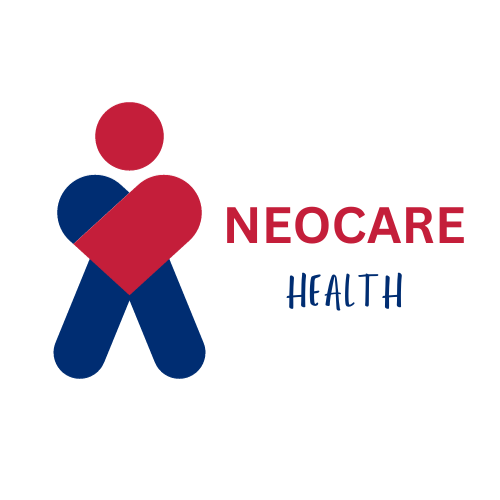How Round-the-Clock Monitoring Benefits Newborn Health
Round-the-clock monitoring is essential for ensuring the health and well-being of newborns, especially those in neonatal care. Continuous observation allows healthcare providers to promptly detect and address any issues, ensuring that newborns receive the immediate care they need. In this article, we will explore the various benefits of round-the-clock monitoring for newborn health, emphasising its importance and the positive impact it has on their development.
Introduction to Round-the-Clock Monitoring
Round-the-clock monitoring involves continuous observation and assessment of a newborn’s vital signs, physical condition, and overall well-being. This type of monitoring is particularly crucial in neonatal intensive care units (NICUs), where premature or critically ill infants require specialised care. With advances in medical technology, healthcare providers can now monitor newborns more effectively, providing a higher standard of care.
Immediate Detection of Health Issues
One of the primary benefits of round-the-clock monitoring is the immediate detection of health issues. Newborns, particularly those in neonatal care, are vulnerable to a variety of medical conditions that can arise suddenly. Continuous monitoring ensures that any changes in their condition are promptly identified, allowing for immediate intervention.
Monitoring Vital Signs
Round-the-clock monitoring includes tracking vital signs such as heart rate, respiratory rate, blood pressure, and oxygen saturation levels. Any abnormalities in these vital signs can indicate potential health problems that require urgent attention. By continuously observing these parameters, healthcare providers can swiftly respond to any changes, preventing complications.
Early Intervention
Early intervention is critical for improving health outcomes in newborns. When health issues are detected early, medical professionals can administer treatments more effectively, potentially reducing the severity of the condition. For example, if a newborn shows signs of respiratory distress, immediate intervention can prevent further complications and support better recovery.
Enhanced Safety and Comfort
Round-the-clock monitoring not only ensures the safety of newborns but also enhances their comfort. Continuous observation allows healthcare providers to make necessary adjustments to the care environment, ensuring that newborns remain comfortable and stress-free.
Environmental Adjustments
Monitoring can help identify environmental factors that may affect a newborn’s health and comfort, such as temperature, humidity, and noise levels. Adjusting these factors can create a more conducive environment for the baby’s recovery and development. For instance, maintaining an optimal temperature can prevent hypothermia or overheating, both of which can be detrimental to newborn health.
Pain and Stress Management
Newborns in neonatal care may experience pain and stress due to medical procedures or their health conditions. Continuous monitoring enables healthcare providers to assess the baby’s pain levels and stress indicators, allowing for timely administration of pain relief or soothing measures. This approach not only alleviates discomfort but also promotes better overall health.
Improved Feeding and Nutrition
Proper feeding and nutrition are crucial for the growth and development of newborns. Round-the-clock monitoring plays a vital role in ensuring that babies receive the necessary nutrients and maintain healthy feeding patterns.
Monitoring Feeding Patterns
Continuous observation helps track feeding patterns, ensuring that newborns are feeding adequately and effectively. For breastfed babies, monitoring can include tracking the frequency and duration of nursing sessions. For formula-fed infants, it involves measuring the amount of formula consumed and the frequency of feedings.
Nutritional Support
Newborns in neonatal care often require specialised nutritional support. Round-the-clock monitoring helps healthcare providers determine if the baby is receiving the right amount of nutrients. For instance, preterm infants may need additional calories and nutrients to support their growth. By closely monitoring their nutritional intake, providers can make necessary adjustments to meet the baby’s needs.
Better Management of Chronic Conditions
For newborns with chronic conditions or congenital abnormalities, round-the-clock monitoring is essential for managing their health effectively. Continuous observation allows for precise management of these conditions, ensuring that the baby receives optimal care.
Chronic Condition Monitoring
Conditions such as congenital heart defects, respiratory disorders, and metabolic issues require vigilant monitoring. Continuous observation helps track the progression of these conditions and the effectiveness of treatments. This information is crucial for making informed decisions about the baby’s care plan.
Customised Care Plans
Based on the data collected from round-the-clock monitoring, healthcare providers can develop customised care plans tailored to the specific needs of each newborn. These plans may include medication adjustments, specialised therapies, and specific feeding regimens designed to address the baby’s unique health requirements.
Enhanced Parental Involvement and Confidence
Round-the-clock monitoring not only benefits the newborn but also provides peace of mind for parents. Knowing that their baby is under constant supervision allows parents to feel more confident and involved in their child’s care.
Real-Time Updates
Many neonatal care units provide real-time updates to parents about their baby’s condition. This transparency helps parents stay informed and engaged in the care process. Understanding their baby’s health status and progress can alleviate some of the anxiety and stress associated with having a newborn in intensive care.
Education and Support
Continuous monitoring also provides valuable data that healthcare providers can use to educate and support parents. By explaining the significance of various health indicators and monitoring results, providers can help parents understand their baby’s condition and care needs. This education empowers parents to participate actively in their baby’s care, fostering a collaborative approach.
Utilisation of Advanced Technology
Advancements in medical technology have significantly improved the effectiveness of round-the-clock monitoring. Modern monitoring systems are more accurate, reliable, and less intrusive, ensuring that newborns receive the highest standard of care.
State-of-the-Art Monitoring Equipment
Neonatal care units are equipped with state-of-the-art monitoring equipment that provides continuous, real-time data on a newborn’s vital signs and other health indicators. These advanced systems can detect even subtle changes in the baby’s condition, allowing for timely interventions.
Telemonitoring and Remote Access
Telemonitoring and remote access technologies enable healthcare providers to monitor newborns from a distance, ensuring continuous supervision even when the primary care team is not physically present. This technology can be particularly beneficial in rural or underserved areas, where access to specialised neonatal care may be limited.
Conclusion
Round-the-clock monitoring is a cornerstone of effective neonatal care, offering numerous benefits that ensure the health and well-being of newborns. By providing continuous observation and immediate detection of health issues, enhancing safety and comfort, improving feeding and nutrition, and enabling better management of chronic conditions, round-the-clock monitoring plays a crucial role in promoting positive health outcomes for newborns. Additionally, it enhances parental involvement and confidence, providing peace of mind to families during a critical time. As medical technology continues to advance, the effectiveness and impact of round-the-clock monitoring will only increase, further improving the standard of care for newborns in neonatal units.










All Rights Reserved 2023 | Privacy Policy | Powered with 🤍 by Shazamme
